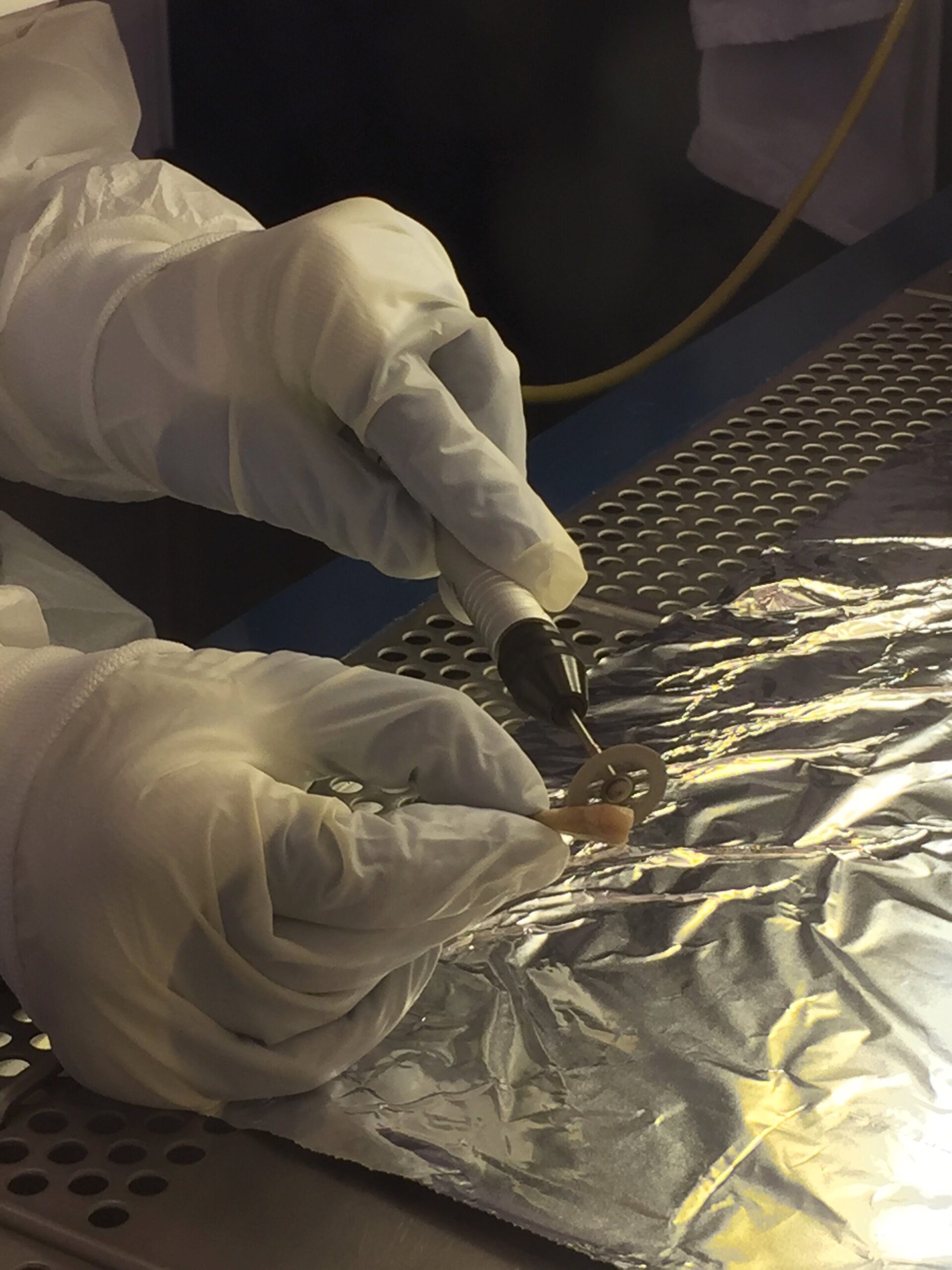Researchers identify 18 executed civilians from Adele, Rethymnon during World War II using ancient DNA analysis
Credit: Foundation for Research and Technology – Hellas
x close
Credit: Foundation for Research and Technology – Hellas
The pioneering study at the national level was carried out by the Paleogenomics and Evolutionary Genetics Research Group of the Institute of Molecular Biology and Biotechnology (IMBB) of the Foundation for Research and Technology – Hellas (FORTH). 18 civilians from the village of Adele (Rethymnon) who were executed on June 2, 1941 have been identified using ancient techniques of DNA and genomic analysis.
The results of these findings were recently published in the journal Forensic Science International: Geneticstitled “Identification of World War 18 executed citizens of Adele, Rethymnon, Crete using an ancient DNA and low-coverage genome approach.”
The Laboratory of Paleogenomics and Evolutionary Genetics aims to conduct basic and applied research in the field of ancient genome analysis. Ancient DNA (aDNA) refers to preserved, but often highly degraded, genetic material obtained from remains found in paleontological and archaeological sites. Sources of genetic material can be isolated from specimens 100 to thousands of years old.
The laboratory specializes in the development, application and analytical techniques related to poorly preserved osteological material, creating an important experimental approach for the molecular identification of human remains and thus a powerful methodological tool for forensic research.
In this context and at the request of the Adele community, the laboratory undertook, coordinated and completed the humanitarian task of identifying 18 civilians, victims of Nazism, who were forced to dig their own mass grave.
Credit: Foundation for Research and Technology – Hellas
x close
Credit: Foundation for Research and Technology – Hellas
Aware of the historical, sensitive and international nature of the problem, which transcends narrow local boundaries, the laboratory, in close cooperation with the community, proceeded to a systematic, methodological and interdisciplinary study of the remains of the victims. The results of the research will be announced at an official memorial event to be held on June 2, 2024.
The research applied a combination of archaeogenomic analyzes and a targeted anthropological study of all cranial remains in order to identify all victims. At the same time, fragmented skulls were restored using anthropological methods.
Molecular identification of the deceased was achieved using genome-wide low-coverage sequencing technologies and cross-referenced with relatives of the victims and using ancient DNA analysis approaches to assess the degree of genetic relatedness, always in compliance with ethics and privacy rules.
This study is the first nationally published work that sheds light on the humanitarian and historical divide, contributing to closing an open chapter for the community, but also to healing the wounds of the victims of the Adele family.
Credit: Foundation for Research and Technology – Hellas
x close
Credit: Foundation for Research and Technology – Hellas
The laboratory’s involvement in the research was a multi-level, complex and demanding challenge, which nevertheless managed to satisfy the relatives’ long-standing and persistent desire for moral vindication of the memory of their ancestors. Now, 83 years later, their loss continues to move and illuminate our path.
Prof. Nektarios N. Tavernarakis, Chairman of the Board of Trustees of the Foundation for Research and Technology, said: “FORTH’s extensive experience, expertise and commitment to pioneering research in the field of archaeogenetics… led to the establishment of the first and only ancient DNA analysis laboratory in Greece and one of the few in Europe.
“The laboratory operates according to international standards, connecting modern scientific research with our culture and history, while creating new perspectives for the study of the past and for the promotion of the Greek cultural heritage.
“The Department of Archaeogenetics enables archaeologists and life science researchers to gain access to analytical technologies that until recently were only available abroad. The Department provides unique opportunities for interdisciplinary approaches and collaboration between traditionally distant scientific fields.”
Credit: Foundation for Research and Technology – Hellas
x close
Credit: Foundation for Research and Technology – Hellas
“This connection of the classical humanities with the life sciences, especially biology, provides a springboard for innovative research activities and creates job opportunities for dedicated scientists.
“The recent study involving the identification of 18 civilians executed by the Nazis in Adele is a prime example of how modern biomedical research can be directly linked to our culture and history. It opens a new window into our past and allows us to gain decisive insight into key historical events with great social impact.
More information:
Psonis Nikolaos et al., Identification of World War 18 executed citizens of Adele, Rethymnon, Crete using an ancient DNA and low-coverage genome approach, Forensic Science International: Genetics (2024). DOI: 10.1016/j.fsigen.2024.103060
Provided by Foundation for Research and Technology – Hellas














Post Comment